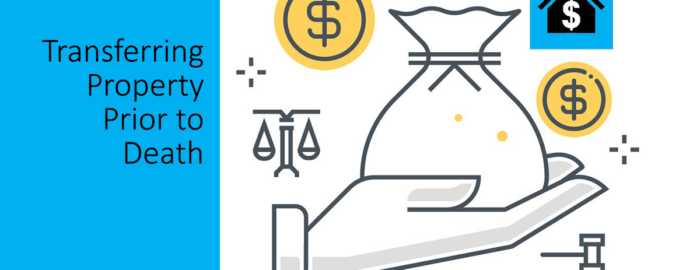As we approach the inevitable end of our lives, we all begin to get things “in order.” You may set up a will, you may want to transfer title to your home to your living relatives before you pass but this could cause an unnecessary expense for your heir.
Usually, when we pass property through a will, the receiving heir receives the property at a stepped-up basis which means the property will transfer at fair market value at the time of the death and that becomes the cost basis for the heir. If your heir sells the property at that fair market value, there would be no gain and no capital gains tax due.
But, if you were to gift the property to your heir before death, they would not only get the property they would also get the original cost basis of the property. The transfer of title (Quit Claim Deed) will not trigger the capital gains tax but when your heir sells, the gain will be calculated by subtracting the basis from the sale price leaving a capital gain subject to tax. The person receiving the gift will not get the stepped-up basis.
There are certainly advantages to transferring property before death. The transfer takes place without having to wait for your death and will bypass the probate process to settle the will. Another advantage to the donor may be to remove the property from the owner’s name which could lower the taxable estate.
You may need to transfer the title of your home before death so you can qualify for Medicaid. The value of your home may make you ineligible. But be careful with this move since Medicaid has a five-year look-back penalty. That means that from the time you apply for Medicaid long-term care, they can look back five-years to make sure you didn’t sell or gift a large asset at below market value. If they discover this, then that sets up a penalty of x.xx dollars per month which means you are penalized with x months of ineligibility. This amount differs by state and sometimes geographical locations. The number of months would be calculated based on how far below the sell or gift was to market value.
Once you deed the property to an heir, you lose control of that property and it cannot be reversed. Depending on your home’s value, there could be gift or estate tax implications. You may run into capital gains tax consequences.
If the heir receiving the gift has creditors or judgments, the gift becomes an asset subject to those creditors or judgments.
Even though the mechanics of transferring title to a property is simple, there are many things to consider for both the person giving the property and the one receiving it. I suggest you consult an attorney and tax professional to determine the best-informed decision available. There could be other alternatives that would better serve your situation.
I can provide Insider Information on Fairfax VA homes for sale. Get you a FREE Market Snapshot Report of Your Northern Virginia Home’s Value, or Search All Northern Virginia Homes For Sale. Put that data you need at the tips of your fingers!


